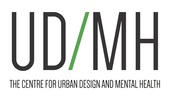|
"Residents of Metro Vancouver are about to participate en masse in a fascinating behavioral experiment. If you care about happiness in cities, you should pay attention to the results, because this kind of experiment is being repeated in cities across the continent... This week, residents will begin voting in a plebiscite on whether to add half a percent to the provincial sales tax to help fund massive transit and road improvements....
What really matters to urban happiness is not infrastructure per se, but what’s called the “system effect” on our lives. System effects are not immediately obvious but they really matter to our health and happiness. For example, studies show a direct correlation between commute times and life satisfaction. System effect: the mayor’s plan will shorten commute times on Vancouver’s most congested roads by 20-30 minutes per day, while transit riders will save up to half an hour. So just about everyone gets more time with family and friends — a key driver of happiness. By most measures, a “No” result in the plebiscite will make the average person poorer, sicker, less free, more frustrated and, yes, less happy in the long run. Yet this is exactly where the polls show the city is headed." More.
0 Comments
Leave a Reply. |
© 2024 - UDMH

 RSS Feed
RSS Feed